- Recherche,
CAILLAT ép. HORVATH Isabelle
Développement d'outils de management et actes de langage dans les entreprises de spectacle vivant
Publié le 21 octobre 2011 – Mis à jour le 29 mars 2012
Thèse en Sciences de gestion Soutenue le 26 septembre 2011
Les entreprises de spectacle vivant évoluent dans un contexte de diminution de ressources externes et de modification des modalités d’attribution des subventions par l’application de la LOLF (Loi Organique relative aux Lois de Finances). Leur problématique repose sur les moyens à mettre en œuvre pour faire face à ces contraintes. Nous nous attachons à démontrer que leur développement dépend de l’amélioration de la logique de coopération entre les acteurs à partir du projet artistique et de l’appropriation des contraintes d’évaluation de la LOLF, pour révéler les performances cachées et développer des ressources internes. Cette recherche se construit à partir de l’hypothèse que l’amélioration de la performance globale des organisations dépend d’une action transformative qui opère selon trois axes interdépendants : l’intervention, les outils de management, le langage–acteur. A partir d’une recherche-intervention dans un théâtre et d’un diagnostic qualitatif dans un autre, nous accompagnons les acteurs dans une conduite de changement et étudions les conditions de développement managérial dans ce type d’organisation. Nous analysons comment l’utilisation du langage dans le cadre de l’Intervention Socio-Economique modifie les représentations et contribue à l’élaboration d’un nouveau dispositif managérial. Nous proposons d’associer les outils de management socio-économiques, utilisés comme des matrices de lecture de l’organisation, aux critères d’évaluation et de subvention des pouvoirs publics pour en faire des outils de réflexion sur le processus de réalisation et de diffusion de spectacle et construire une représentation partagée entre les différents acteurs.
Performing arts companies operate in a context of declining resources and changes in the rules governing the allocation of grants, in accordance with the LOLF (Organic Law relative to the Laws of Finance). Their challenge lies in finding ways to address these constraints. We aim to demonstrate that their development depends on improving the manner in which all parties cooperate, based on the artistic project and taking into account the constraints resulting from the evaluation used by the LOLF, to reveal hidden costs and to develop internal resources. This research is based on the hypothesis that improving the overall performance of organizations depends on a transformative action that operates in three interdependent areas: intervention, management tools, and the speech-actor. Based on intervention-research in one theatre and on a qualitative study in another, we have assisted actors in the process of change management and examined the conditions in which managerial development takes place in this type of organization. We analyse how language use in the context of Socio-Economic Intervention modifies the representations and contributes to the elaboration of a new managerial instrument. We propose the use of socio-economic management tools, serving as a framework for analyzing the organisation, combined with the criteria of evaluation and allocation of public funding as a basis of reflexion on the process of creation and dissemination of shows, as well as a means of building a shared representation between the different actors.
Mots clé : Apprentissage organisationnel ; conduite de changement ; coopération ; coûts cachés ; dysfonctionnements ; organisations spectacle vivant ; outils de management ; performance socio-économique ; recherche-intervention ; représentation ; actes de langage ; transformation.
Keywords : Organisational learning ; change management ; cooperation ; hidden costs ; dysfunctions ; performing arts organizations ; management tools ; socio-economic performance ; intervention-research ; representation ; speech acts ; transformation
Directeur de thèse : Marc BONNET
Membres du jury :
Pierre-Jean BENGHOZI, Directeur de Recherche CNRS, Ecole Polytechnique
Yvon PESQUEUX, Professeur, CNAM Paris
Marc BONNET, Professeur, Université Jean Moulin Lyon 3
Henri SAVALL, Professeur honoraire, Université Jean Moulin Lyon 3
Guy SAINT LEGER, Docteur en sciences de gestion, ESC Saint-Etienne
Jean-Claude BERUTTI, Metteur en scène et ancien directeur d'un centre dramatique national
Président du jury : Pierre-Jean BENGHOZI
Mention : Très honorable avec les félicitations du jury
Equipe d'accueil : MAGELLAN
Performing arts companies operate in a context of declining resources and changes in the rules governing the allocation of grants, in accordance with the LOLF (Organic Law relative to the Laws of Finance). Their challenge lies in finding ways to address these constraints. We aim to demonstrate that their development depends on improving the manner in which all parties cooperate, based on the artistic project and taking into account the constraints resulting from the evaluation used by the LOLF, to reveal hidden costs and to develop internal resources. This research is based on the hypothesis that improving the overall performance of organizations depends on a transformative action that operates in three interdependent areas: intervention, management tools, and the speech-actor. Based on intervention-research in one theatre and on a qualitative study in another, we have assisted actors in the process of change management and examined the conditions in which managerial development takes place in this type of organization. We analyse how language use in the context of Socio-Economic Intervention modifies the representations and contributes to the elaboration of a new managerial instrument. We propose the use of socio-economic management tools, serving as a framework for analyzing the organisation, combined with the criteria of evaluation and allocation of public funding as a basis of reflexion on the process of creation and dissemination of shows, as well as a means of building a shared representation between the different actors.
Mots clé : Apprentissage organisationnel ; conduite de changement ; coopération ; coûts cachés ; dysfonctionnements ; organisations spectacle vivant ; outils de management ; performance socio-économique ; recherche-intervention ; représentation ; actes de langage ; transformation.
Keywords : Organisational learning ; change management ; cooperation ; hidden costs ; dysfunctions ; performing arts organizations ; management tools ; socio-economic performance ; intervention-research ; representation ; speech acts ; transformation
Directeur de thèse : Marc BONNET
Membres du jury :
Pierre-Jean BENGHOZI, Directeur de Recherche CNRS, Ecole Polytechnique
Yvon PESQUEUX, Professeur, CNAM Paris
Marc BONNET, Professeur, Université Jean Moulin Lyon 3
Henri SAVALL, Professeur honoraire, Université Jean Moulin Lyon 3
Guy SAINT LEGER, Docteur en sciences de gestion, ESC Saint-Etienne
Jean-Claude BERUTTI, Metteur en scène et ancien directeur d'un centre dramatique national
Président du jury : Pierre-Jean BENGHOZI
Mention : Très honorable avec les félicitations du jury
Equipe d'accueil : MAGELLAN

Je consulte le magazine de l’actualité partenariale et des relations entreprises de l’iaelyon
Mise à jour : 29 mars 2012
